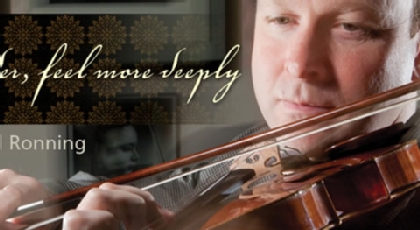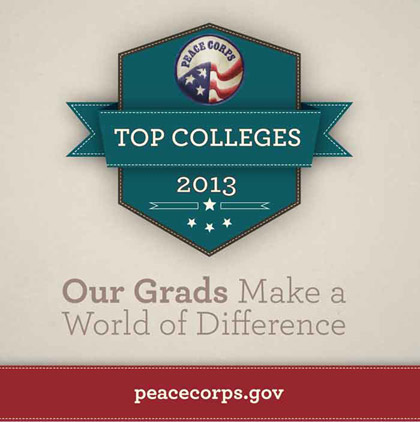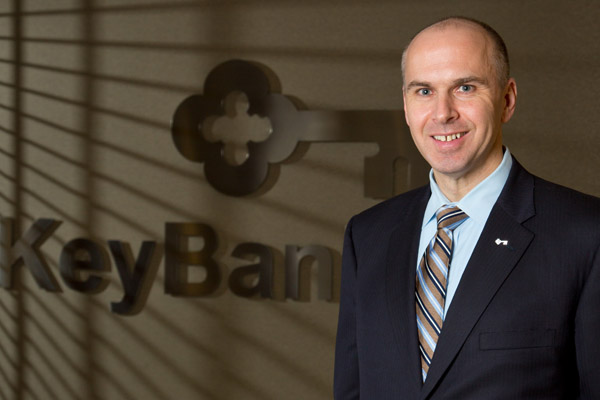Page 57 • (1,595 results in 0.03 seconds)
-
the process, from camera angles and storyboarding the sequence of events to editing. Olsen estimates her team of four spent 125 hours total on a seven-and-a-half minute film. “I was nervous about the entire process,” Olsen said. “But when we actually started filming, it was just so much fun.” Olsen adds she was surprised to find the filmmaking assignment did enhance her language skills. Since all aspects of the process – storyboards, camera directions, the script – had to be completed in Norwegian
-

-time musician, you have to be tough and good to make it in the professional world, he said. But even if that’s not your final goal, Ronning encourages all students with an interest in music to pursue it at PLU. “When you build music skills, you build skills for life,” he said. “It teaches you to think faster, work harder, and to feel more deeply. And PLU is a great place to study music, whether you pursue it professionally or just pursue it passionately.” Ronning feels blessed he’s been able to do
-

communities in 76 host countries on projects related to agriculture, community economic development, education, environment, health and youth development. During Peace Corps service, college graduates make a difference in communities overseas. Volunteers return home as global citizens with cross-cultural, leadership, language, teaching and community development skills that position them for advanced education and professional opportunities in today’s global job market. Ninety percent of volunteer
-

& Resources house, taking stock of PLU’s assets and community needs. Those conversations then led to what is now Community Meals, a monthly community dinner hosted at Trinity Lutheran Church. These dinners are a result of a recognition that people were already doing good work at PLU and in the neighborhood and that those efforts could be tied together in service of others.“Lots of different groups had dovetailing skills and strengths, and we just put two and two together,” says Eva Frey, Dean of Students
-
practice, evidence-informed practice, clinical reasoning, and patient management, including for special populations. They will also develop a strong moral foundation and soft skills necessary for PT practice, including social and emotional intelligence, cultural competencies, and understanding social determinants of health. Evidence-informed principles and clinical decision-making skills will be applied in professional practice courses and integrated clinical experiences in various health settings
-
skills they will need to later fulfill their obligations as officers in the Army. Cadets will train on topics such as reflexive fire, weapons training, obstacle course, fire support, leadership development, land navigation, advanced land navigation, mounted maneuver training, engineer training, physical training, and close quarters combat. Cadet Troop Leader Training (CTLT)The Cadet Troop Leader Training (CTLT) provides Cadets the opportunity to experience leadership in Army Table of Organization
-
necessary skills. For example, if you are thinking of majoring in nursing because you heard there is a high demand for this well paying job, and you like to help people, but you’ve done average or less than average work in science and math courses in high school and/or college, you may need to ask yourself if nursing is a realistic choice. Don’t Rush! Making a hasty decision about your major may be more time consuming and expensive in the end if you go through too many changes later. In order to make a
-

court help you develop team and leadership skills? SM: The lessons I learned as a basketball player at PLU were invaluable. Balancing my studies with four years of practices, team meetings, travel and games was not easy. But the tension between these two priorities taught me how to manage time, deal with stress, set priorities, and balance a heavy load. As a basketball player, I learned how to compete. I experienced the benefits and the sacrifices that come with being a good teammate, and I learned
-
opportunities to live the learning, whether it is on a sports team, in student leadership roles, in the community, in a work setting, in a club or other type of experience. We know that the ability to work well with others is paramount to student success in life. We are committed to providing opportunities where teamwork and conflict resolution skills can be learned and enhanced. We are committed to staying relevant to current students and using innovation and creativity in presenting these programs and
-
philosophical principles of the teaching/learning process. Analysis of adult teaching strategies and the process of self and student evaluations. (3) (3 credits didactic) NURS 640 : ENP Procedures Provides the Emergency Nurse Practitioner student with a range of diagnostic and interventional skills used in urgent care and emergency settings; including, the ability to understand, manage, and safely perform these procedures. (2) (2 credits lab/seminar) NURS 641 : ENP I: Lifespan Emergency Care This course
Do you have any feedback for us? If so, feel free to use our Feedback Form.


